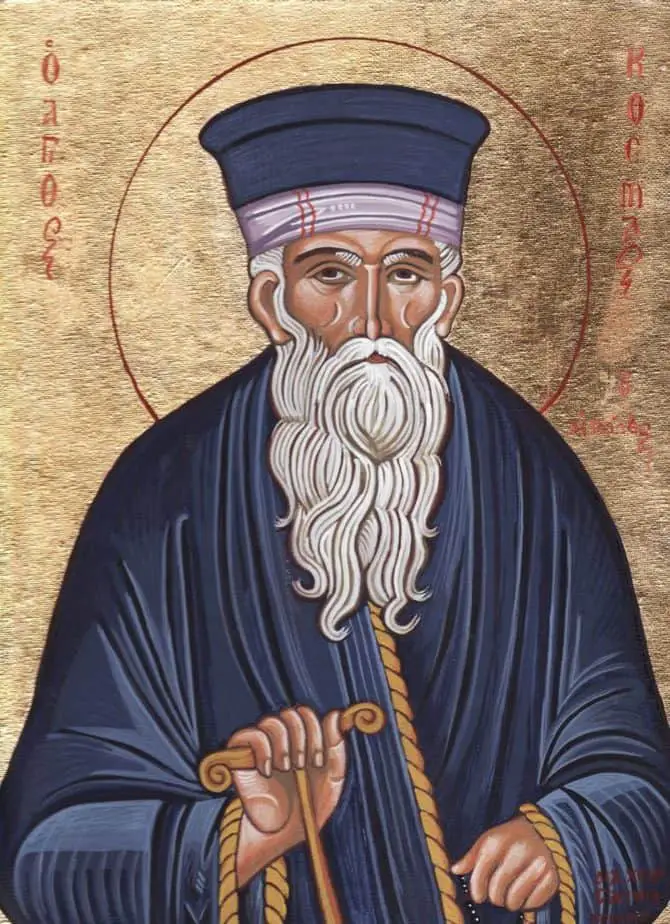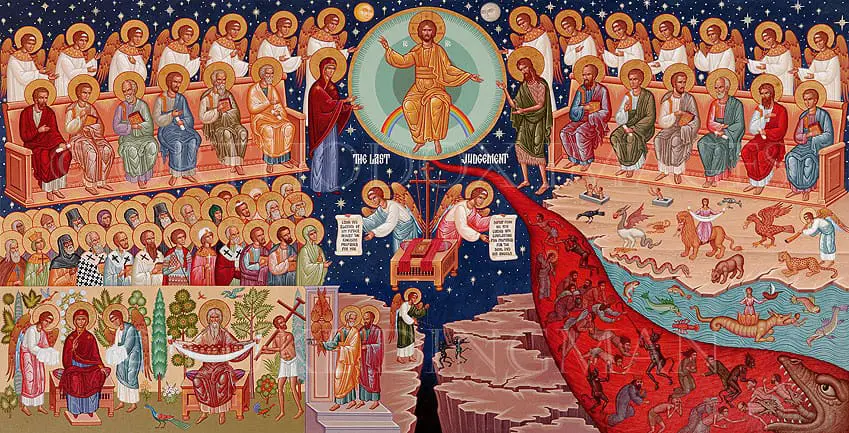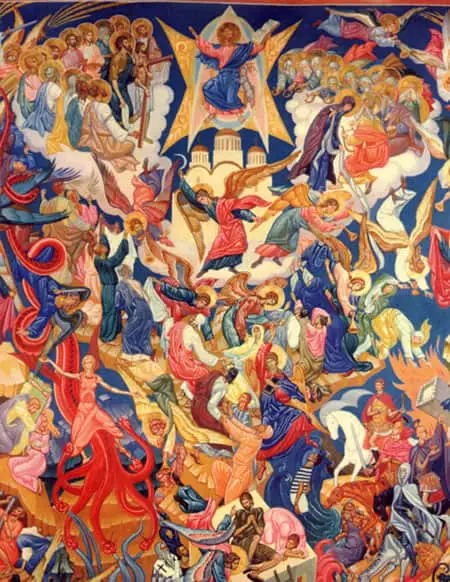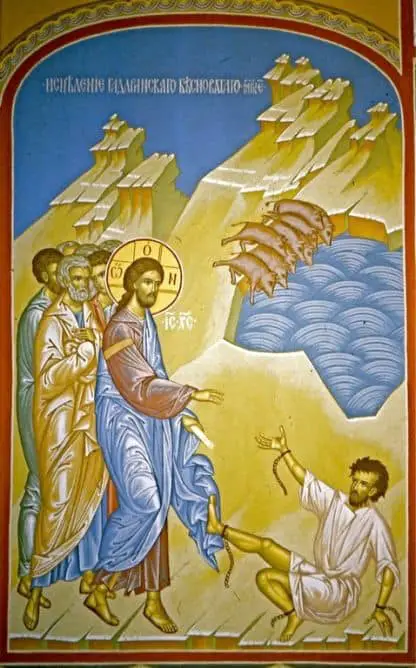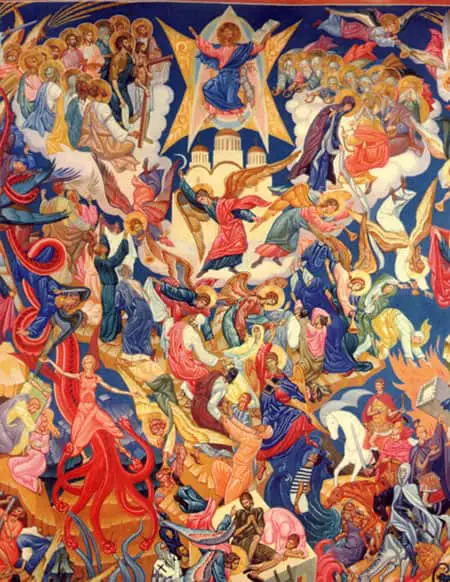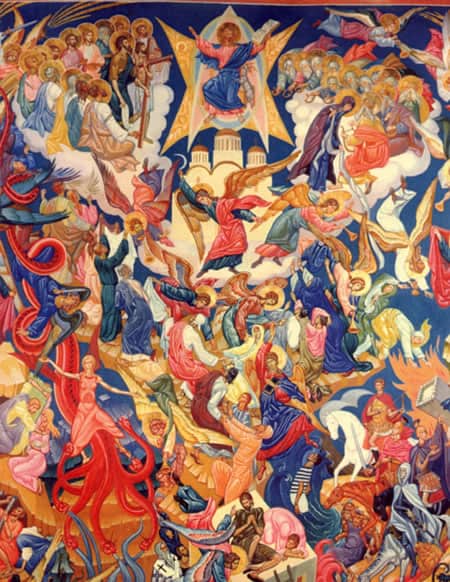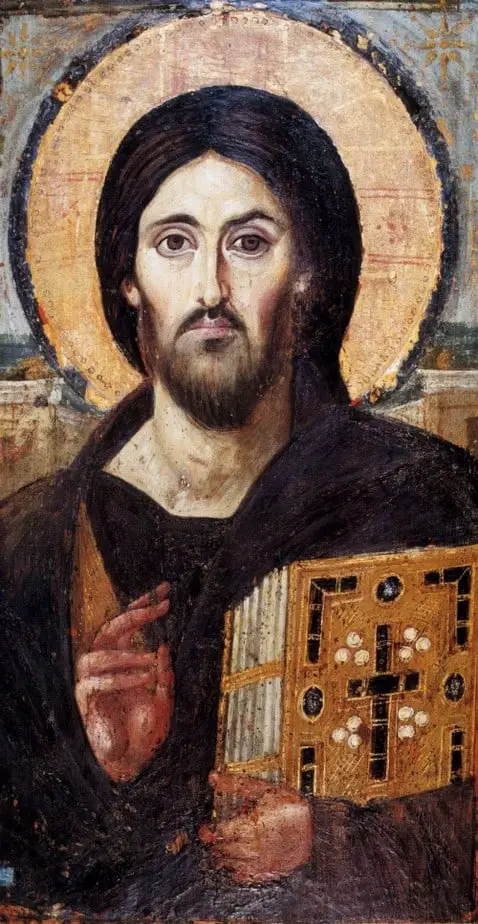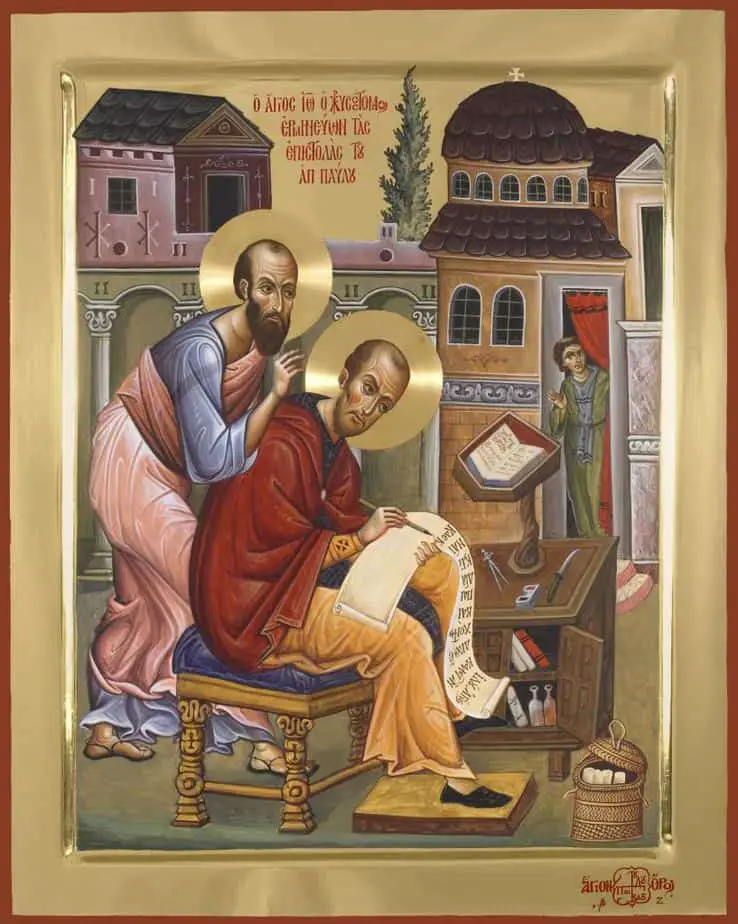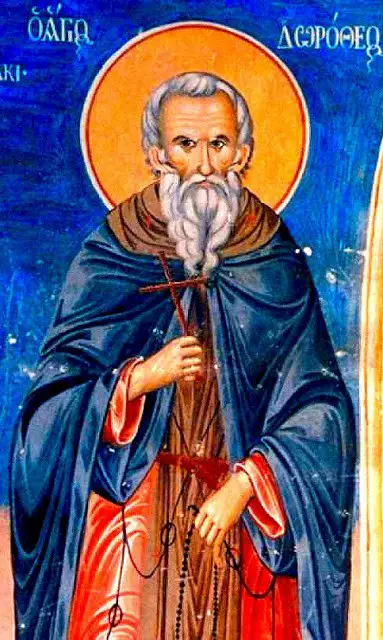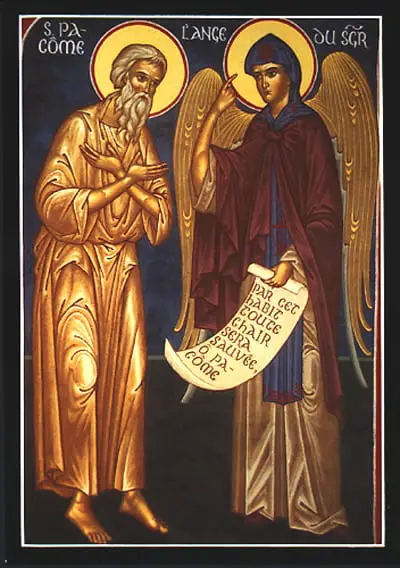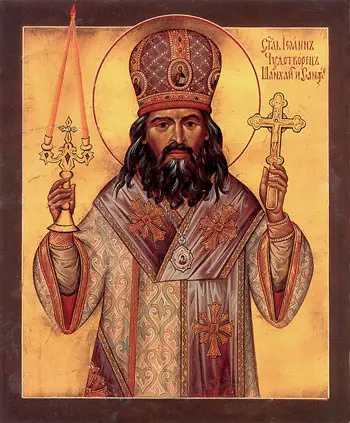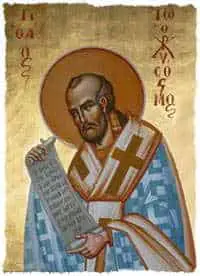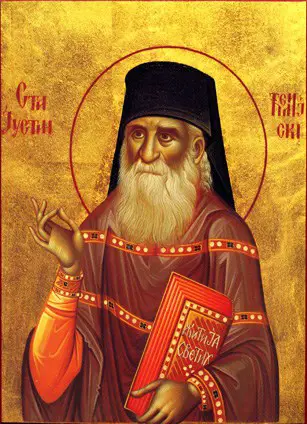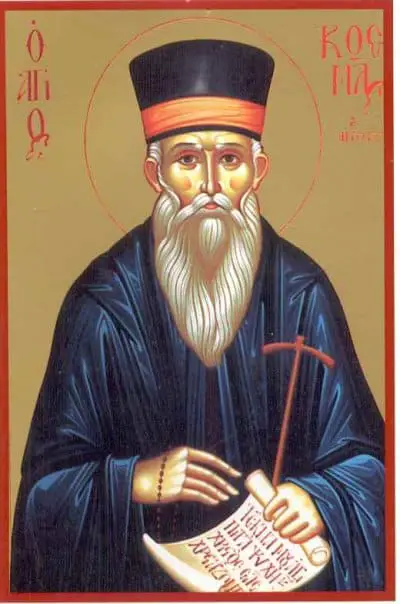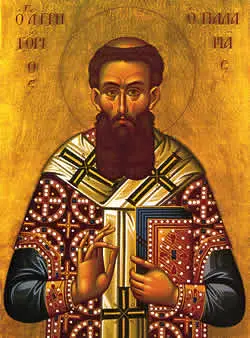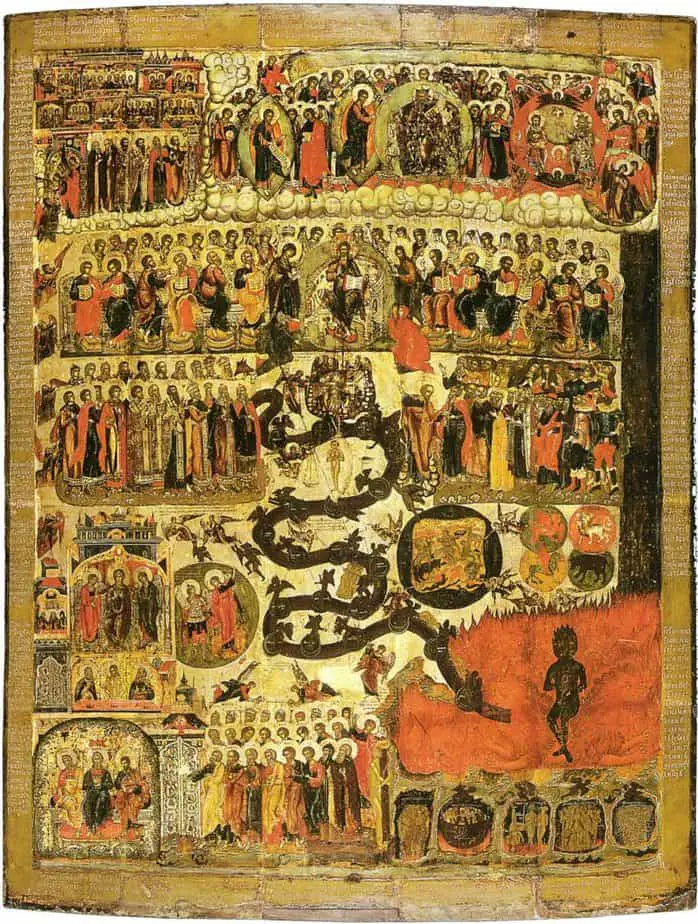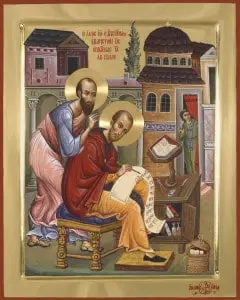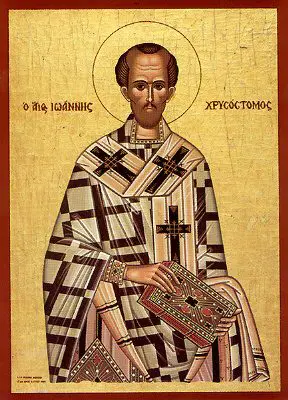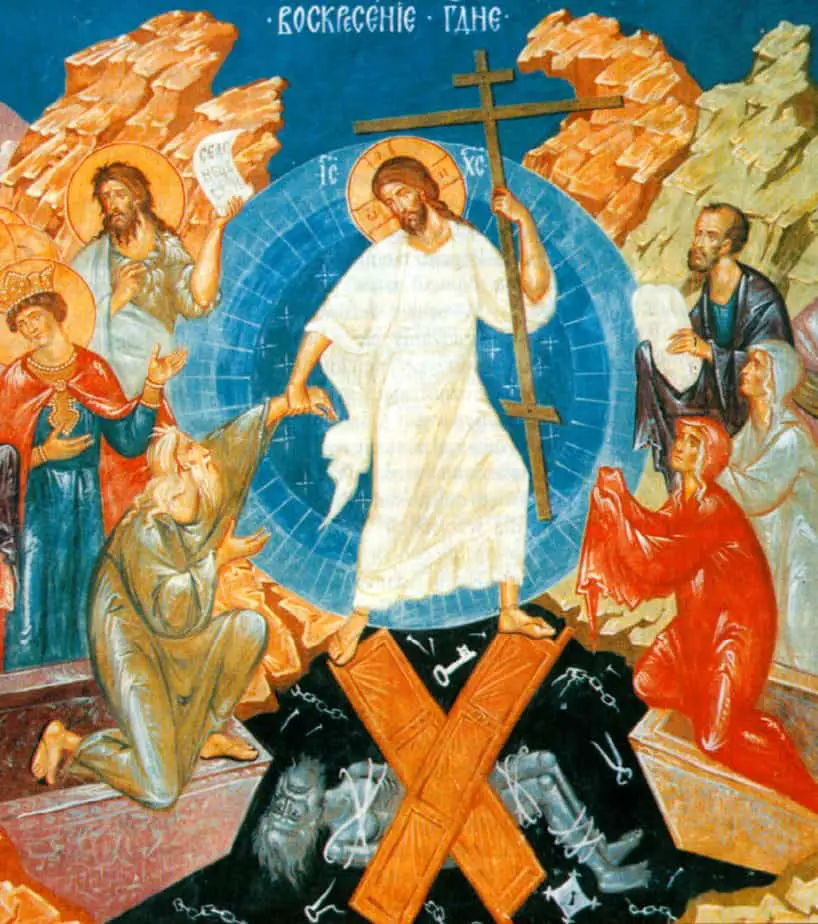If anyone is devout and a lover of God, let him enjoy this beautiful and radiant festival.
If anyone is a wise servant, let him, rejoicing, enter into the joy of his Lord.
If anyone has wearied himself in fasting, let him now receive his recompense.
If anyone has labored from the first hour, let him today receive his just reward. If anyone has come at the third hour, with thanksgiving let him keep the feast.
If anyone has arrived at the sixth hour, let him have no misgivings; for he shall suffer no loss. If anyone has delayed until the ninth hour, let him draw near without hesitation. If anyone has arrived even at the eleventh hour, let him not fear on account of his delay. For the Master is gracious and receives the last, even as the first; he gives rest to him that comes at the eleventh hour, just as to him who has labored from the first. He has mercy upon the last and cares for the first; to the one he gives, and to the other he is gracious. He both honors the work and praises the intention.
Enter all of you, therefore, into the joy of our Lord, and, whether first or last, receive your reward. O rich and poor, one with another, dance for joy! O you ascetics and you negligent, celebrate the day! You that have fasted and you that have disregarded the fast, rejoice today! The table is rich-laden; feast royally, all of you! The calf is fatted; let no one go forth hungry!Let all partake of the feast of faith.
Let all receive the riches of goodness.
Let no one lament his poverty, for the universal kingdom has been revealed.
Let no one mourn his transgressions, for pardon has dawned from the grave.Let no one fear death, for the Saviour’s death has set us free.
He that was taken by death has annihilated it! He descended into hades and took hades captive! He embittered it when it tasted his flesh! And anticipating this Isaiah exclaimed, “Hades was embittered when it encountered thee in the lower regions.” It was embittered, for it was abolished! It was embittered, for it was mocked! It was embittered, for it was purged! It was embittered, for it was despoiled! It was embittered, for it was bound in chains!
It took a body and, face to face, met God! It took earth and encountered heaven! It took what it saw but crumbled before what it had not seen!
“O death, where is thy sting? O hades, where is thy victory?
”Christ is risen, and you are overthrown!
Christ is risen, and the demons are fallen!
Christ is risen, and the angels rejoice!
Christ is risen, and life reigns!
Christ is risen, and not one dead remains in a tomb!
For Christ, being raised from the dead, has become the First-fruits of them that slept.
To him be glory and might unto ages of ages. Amen.
